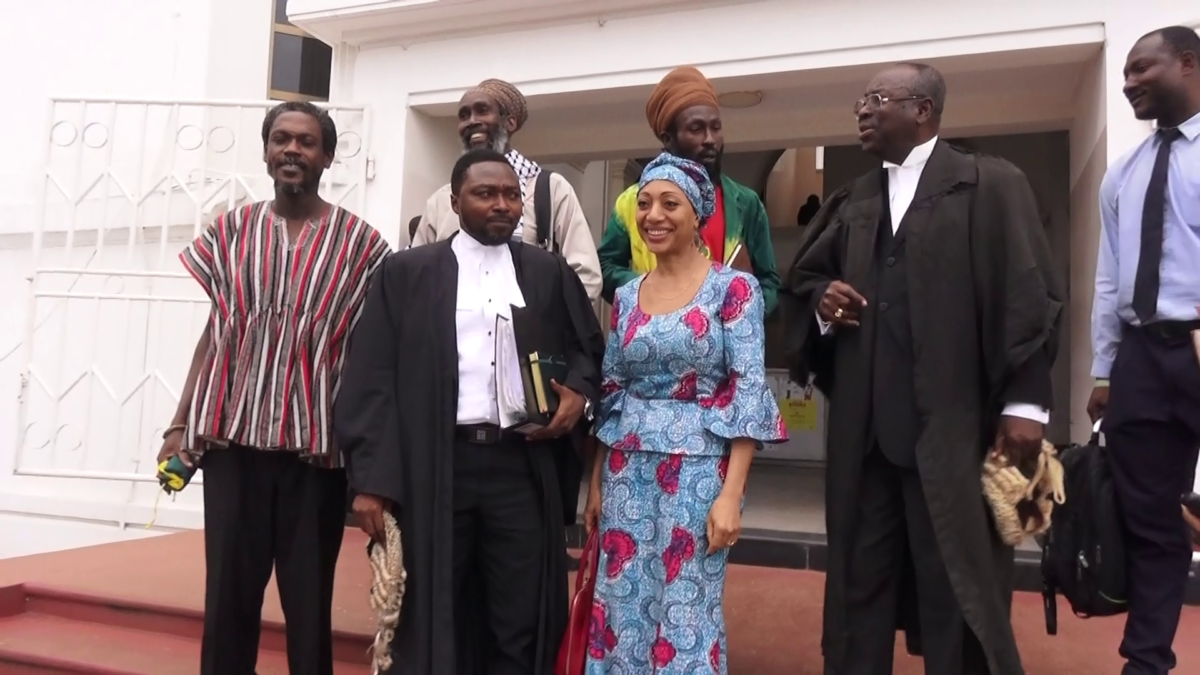Both feuding parties in Ghana’s legal battle over the adoption of genetically modified organisms (GMOs) are confident of victory following a hearing this week before the Supreme Court.
However, only one will prevail when the High Court’s Human Rights Division hands down a ruling in the case, which has dragged on for more than four years, with no end in sight.
Food Sovereignty Ghana (FSG) and three other civil society groups first filed the suit in February 2015. They are seeking, among other relief, a declaration that ongoing processes by various government agencies to commercialize GMOs are illegal.
The Ghana National Farmers and Fishermen Association (GNAFF), one of the defendants, had requested that the Supreme Court quash the High Court’s May 2019 ruling that it has jurisdiction to hear the case. But the five-member Supreme Court panel this week agreed that the lower court was right.
Though they didn’t receive a favorable finding, John Awuku Dziwornu of GNAFF said they are poised to return to the High Court to prove the judiciary has no business halting ongoing plans to introduce GMOs in the country. “We will go back to fight the real case there…. And we will win a victory for farmers so they can grow GMOs,” Dziwornu told the Alliance for Science outside the court.
George Tetteh Wayoe, a lawyer for FSG, took the Supreme Court’s ruling as a sign of better days ahead for his side. “We are happy about this ruling from the court. It boosts our case. It tells the world that the court of Ghana is ready to look at genetic engineering. Don’t let us belittle this action,” he told the Alliance.

In their 2015 statement of claim, the anti-GMO groups insisted ongoing processes to commercialize GMOs amount to a breach of the country’s laws. They argued that the government blatantly disregarded Biosafety Act 2011 and that international biosafety protocols also have been breached.
FSG was joined in its suit by the Convention People’s Party — Ghana’s third largest political party —the Vegetarian Association of Ghana and a farmer group. Four different government agencies, including the National Biosafety Authority, which regulates biotechnology, were named as defendants in the case. The court granted GNAFF’s request to join as a defendant to champion the position of farmers.
The plaintiffs are seeking a declaration that the government has not met the necessary legal requirements as contained in National Biosafety Act 2011 to allow for the release and commercialization of GMOs. They are also seeking a declaration that the National Biosafety Committee (an interim but now defunct committee that approved trials for GMO cowpea, rice and cotton before the National Biosafety Authority was established), cannot approve the release and commercialization of GMOs per provisions in the Biosafety Act.
In earlier proceedings, GNAFF raised a number of objections before the High Court, including a claim that the legal action is premature because the Biosafety Act makes room for grievance settlement processes at the level of a board and appeal’s tribunal. The High Court should not be entertaining the legal suit before those procedures have been exhausted, GNAFF argued.
But the High Court disagreed, prompting GNAFF to proceed to the Supreme Court seeking to quash that ruling. However, the justices agreed the High Court may hear the case.
GNAFF will now go back to pursue the substantive case before the High Court. “I am happy,” Dziwornu said. “The Supreme Court judges are very fair. They have given us the opportunity to come up with issues in a way that no one will argue about it again.”
Background
In their initial filing, the plaintiffs argued that no risk assessment was conducted before GMO crop trials occurred, which they say makes the process illegal. They also claimed there were no appropriate structures to contain the GMO crops when confined field trials were started, and that genetic engineering will seriously impact the country’s food supply.
But GNAFF insisted in its counter claim that GMOs have vast potential to enhance agricultural productivity. A decision to ban the crops will adversely impact farmers and fishermen, and by extension their economic and social rights, the group argued. The farmers say biotechnology as a tool for the enhancement of agricultural productivity is in consonance with Article 36 (2) of the 1992 constitution, which enjoins the state to take appropriate measures to promote development of agriculture and industry.
FSG attorney Tetteh Wayoe told the Alliance for Science that FSG is in court because it is convinced GMOs are not good for the country. “Ghana should be grateful to the plaintiffs,” he said. “Posterity will judge us and tell us the steps are in order. If we sit in our country and a technology is coming and all of us are sitting down, then we are not pro-active. But if a section of the people say no, we have a problem with it, then go to court, it is the way to go.”
But Dziwornu cautioned against efforts to frustrate the process of adopting GMO crops, saying they are in the country’s best interest. “Already, the structures are in place; we are doing field trials on rice and cowpea and cotton,” he said. “So we are fighting for farmers. National institutions are doing the trials. We are not expecting big multinationals to come take over our food sovereignty or our means of production.”
Dziwornu also noted that other African nations are moving forward with GMO crops. “In Nigeria, they have advanced with the ongoing field works. So why can’t we do that? Are we going to stay aloof and allow others to take over our agriculture?”
The substantive case has now resumed in the High Court. It is unclear when the proceeding will conclude.
